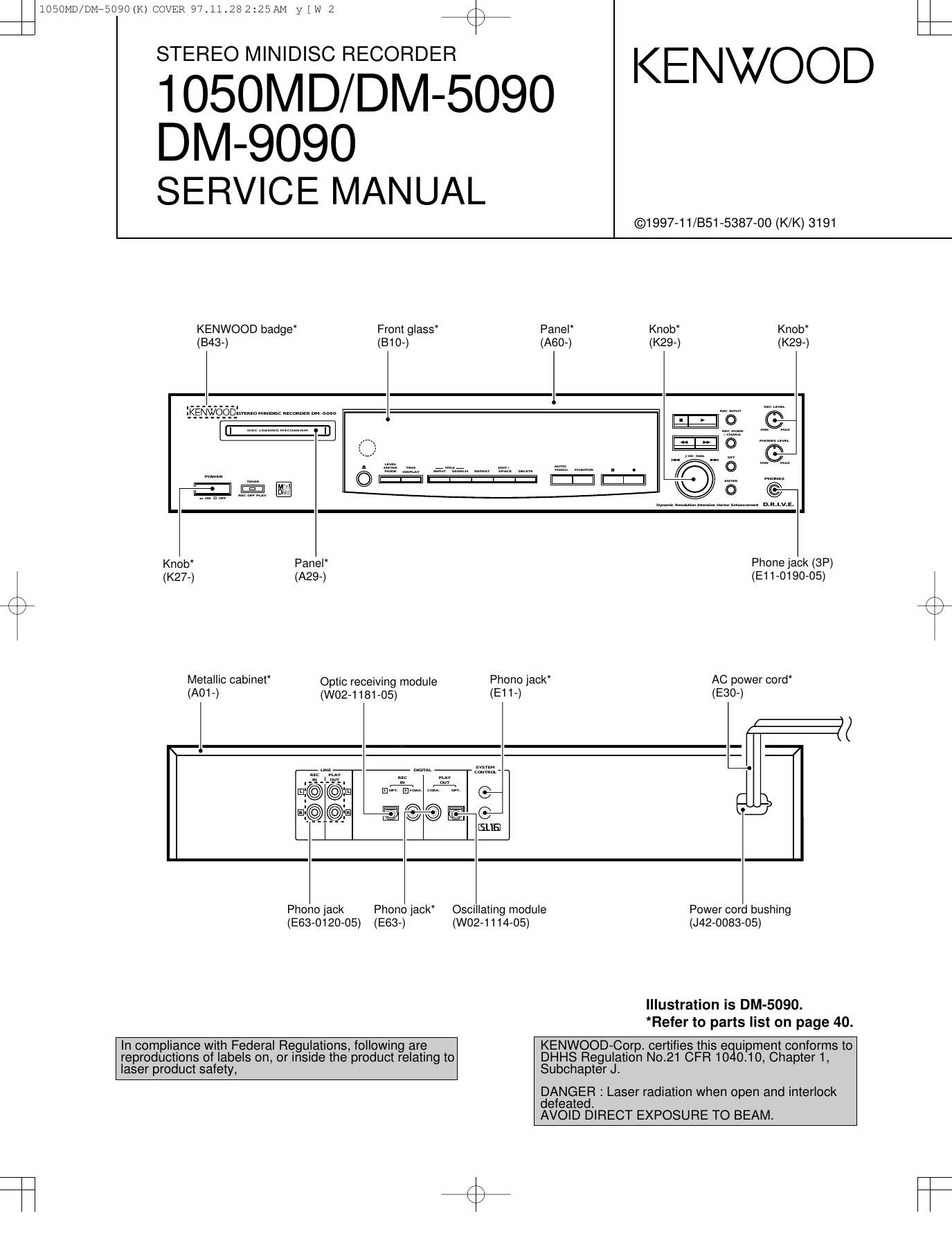Kenwood DM 5090 Service Manual
This is the 40 pages manual for Kenwood DM 5090 Service Manual.
Read or download the pdf for free. If you want to contribute, please upload pdfs to audioservicemanuals.wetransfer.com.
Page: 1 / 40
